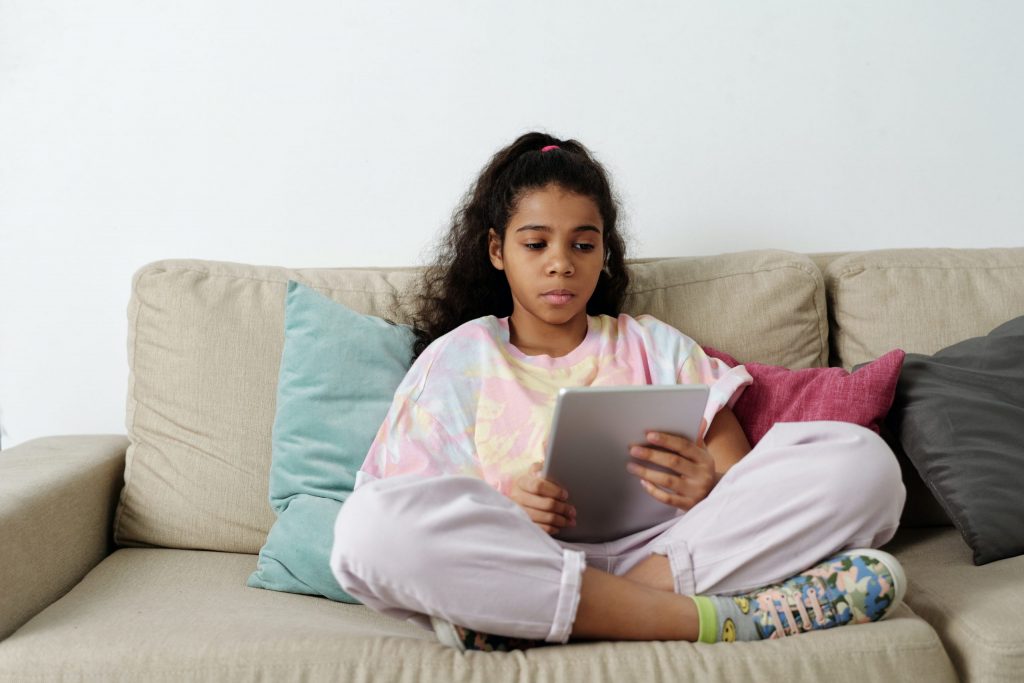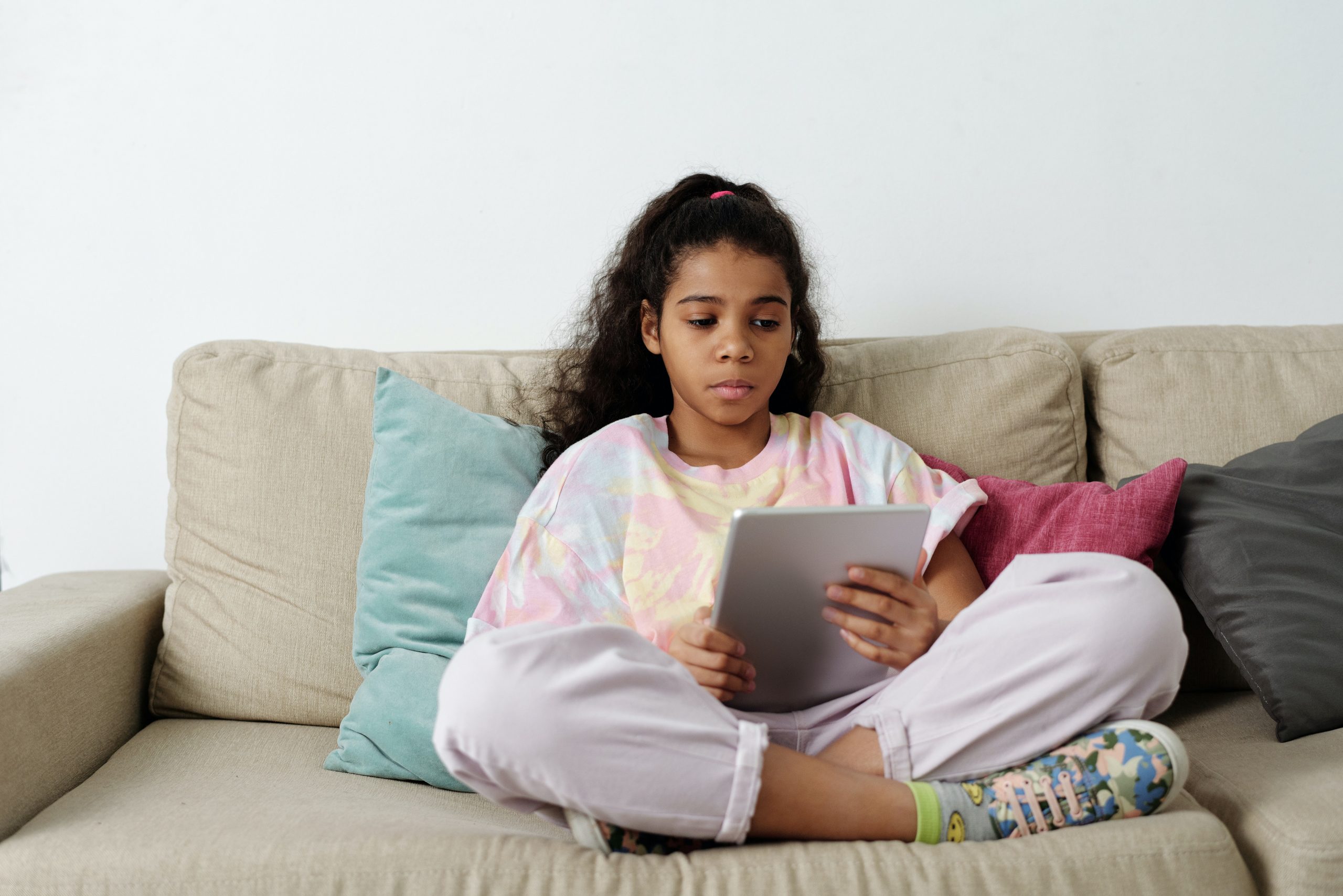Menu
Close

Screens and your child: the inside scoop
May 6, 2020

Schools are closed, activities and play dates are cancelled, and children are at home. Meanwhile, many parents are at home now, too, often busy with their day jobs. It’s a perfect storm for increased screen time for children.
So, what does this mean for children? Google Classroom and online museum tours aside, how is all this virtual time affecting them? Are the screens keeping them isolated, or helping them build social connection that gets them through this?
The short answer is, it’s complicated.
Research shows that high amounts of screen time may negatively affect children’s attention span and development (especially for children under two years). For adolescents, the risks are considered very small when compared to other challenges of teenage life. In some studies, however, social media use has been linked to youth depression. This doesn’t mean, though, that recreational screen time can’t have benefits. It can certainly be part of how a child learns to socialize and have good social connections—especially when in-person time is not an option.
Consider these tips when weighing the pros and cons of increased screen time.
1. Stay away from shame
Don’t shame parents (or yourself) for allowing extra screen time. This is a unique – and temporary – situation. It is also an exceptionally stressful time for parents who may be struggling to do their paid work from home. Allowing an increase in screen time may actually help de-stress the home environment.
2. Engage
You will want to be engaged in your child’s screen time. When you are part of choosing what they see or who they interact with, you are reinforcing your connection to them. Video chats with grandparents or friends can be good for everyone’s mental health, but letting them explore the depths of YouTube on their own, maybe not so much. Talk to your children about what they’re watching or playing.
3. Balance
You will want to balance recreational screen time with a diversity of activities: including moving around—outside if possible. Give them time to be bored and make up their own fun—this allows for creativity and free play. You could share (screen-free) conversation and snack and meals at the same time every day or have a board game night once a week. When you balance screen time with other activities, you can help improve language skills and cooperation.
4. Let the screen be a window
You can view your children’s screens as windows on the social world, especially now, when children’s interactions are limited. Digital technologies can also bring children together, through video play dates, and even through shared games on digital platforms. In times of isolation, screens can help your children stay in touch with family and friends.
5. Notice when screen time becomes passive
When screen time becomes boring for your children, it becomes a “passive” activity and is less likely to be beneficial. Things like endless scrolling or passive watching can be numbing and can leave them feeling cranky and tired. Hell hath no fury like a child who’s had a show turned off abruptly before it was over!
6. Social media: good or bad for your teens?
There’s one lingering question you might have: is social media good or bad for your teen’s social connections? Research shows that social media interaction isn’t always positive or healthy. But nor is it always negative.
Be aware that overuse of social media can produce feelings of loneliness, low self-esteem, symptoms associated with depression, and a reduced sense of social connectedness.
You will also want to recognize that the use of social media is important for many teens. It can be an important part of how they socialize. Cutting them off from their peer group when their main means of connecting is social media platforms could make them feel more isolated and alone. Make sure you check in to ensure their online relationships are healthy and that your teens aren’t overwhelmed. Hint: this is probably good advice for mom or dad, too.
